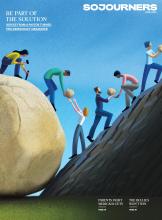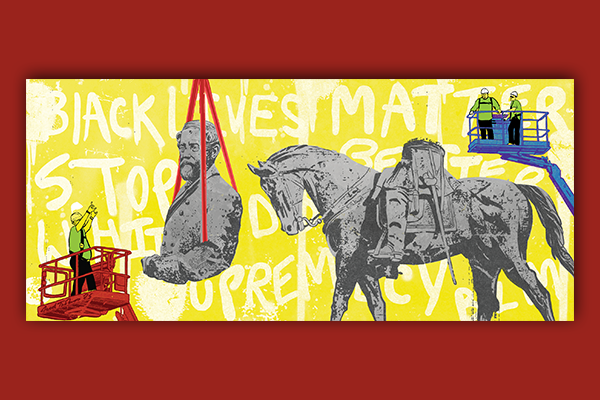I GREW UP in Northwest Ohio, in the house where my dad was born. My mother was from Eastern North Carolina. My dad’s paternal great-grandparents immigrated to Ohio from Germany in the 1870s. My mom didn’t know much about her people, except that they’d always been rural and not well off.
A relative once sardonically expressed thanks that our paternal ancestors left Germany long before they could become Nazis and that our Southern relatives were all probably too poor to have enslaved people. The implication was that the only surefire ways to avoid complicity in great evil are chance and circumstance. History has heroes, resisters, and those who spur and lead wickedness; but many people just get caught up in sheer survival or go along to get along. Sometimes moral choices are made in imperceptible increments, and personal agency can feel elusive.
I’ve been thinking about this because of the push by the Trump administration, Heritage Foundation, and others to rewrite, rearrange, and obscure history in the name of countering the “evil” of diversity, equity, and inclusion. They are trying to scrub the record to make straight white males the heroes of an imaginary world where even their most brutal, depraved actions were justifiable means to “greatness.”
Read the Full Article

